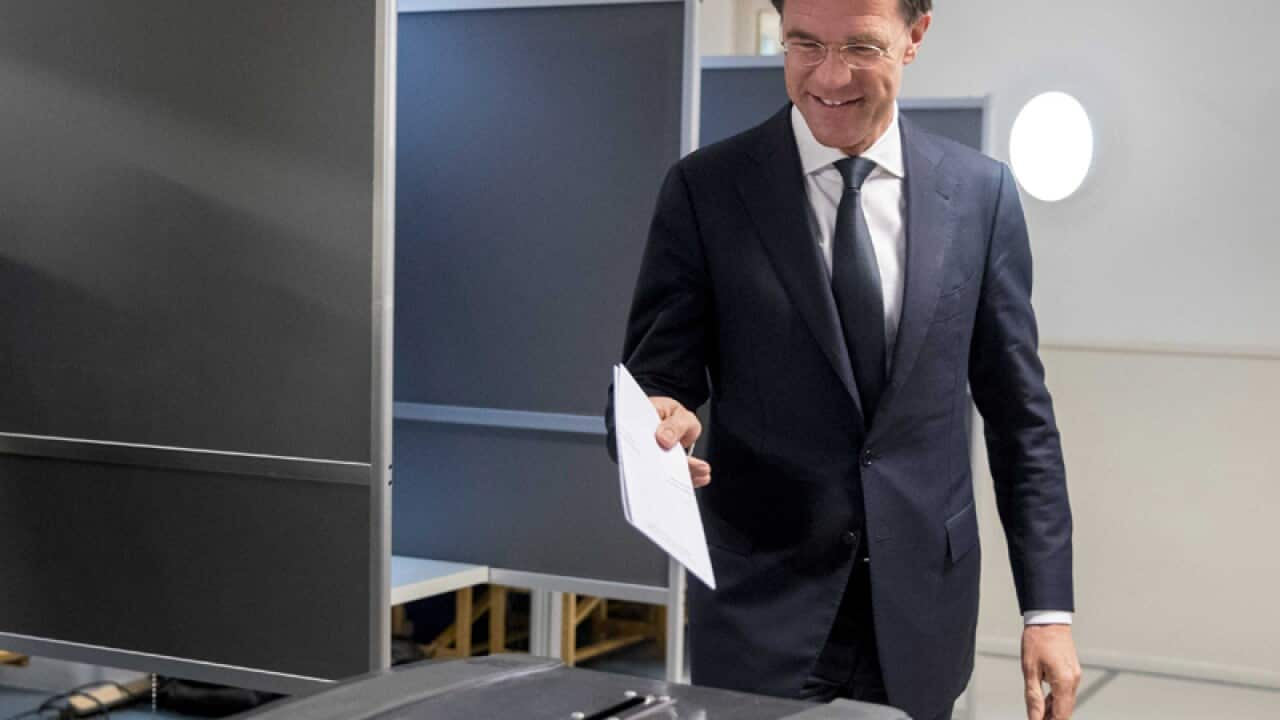Dutch centre-right Prime Minister Mark Rutte has scored a resounding election victory over anti-Islam and anti-EU Geert Wilders, offering huge relief to other governments across Europe facing a wave of nationalism.
Rutte declared it an "evening in which the Netherlands, after Brexit, after the American elections, said 'stop' to the wrong kind of populism."
Rutte received congratulatory messages from European leaders. The euro gained as the results pointed to a clear Rutte victory.
Experts said Rutte won on a mix of factors, not all of which may apply to France, whose political establishment faces a challenge from a far right populist Marine Le Pen next month.
Moreover a number of parties including Rutte's VVD and the third place Christian Democrat party (CDA) have already adopted most of Wilders' anti-immigration platfom, if not his fiery anti-Islam rhetoric.
"Rutte profited from moving to the right, but also from Wilders having radicalised a lot over the last years and being invisible in the campaign," said Cas Muddle, associate professor at the University of Georgia, referring to Wilders' decision to forego election debates until the final week of the campaign.
"On top of that, Turksh president Erdogan gave (Rutte) a beautiful gift."
Rutte got a last-minute boost from a diplomatic row with Turkey, which allowed him to take a tough line on a majority Muslim country during an election campaign in which immigration and integration have been key issues.
Wilders said he had not achieved the electoral victory he had hoped for but was ready to offer tough opposition.
"I would rather have been the largest party.... but we are not a party that has lost. We gained seats. That's a result to be proud of," Wilder told journalists.
With around 95 per cent of votes counted, Rutte's VVD Party won 33 of parliament's 150 seats, down from 41 at the last vote in 2012. Wilders was second with 20, the CDA and centrist Democrats 66 tied for third with 19 each, data provided by the ANP news agency showed.
At 78 per cent, turnout was the highest in a decade in an election that was a test of whether the Dutch wanted to end decades of liberalism and choose a nationalist, anti-immigrant path by voting for Wilders and his promise to "de-Islamicise" the Netherlands and quit the European Union.
The result was a relief to mainstream parties across Europe, particularly in France and Germany, where right-wing nationalists hope to make a big impact in elections this year, potentially posing an existential threat to the EU.

